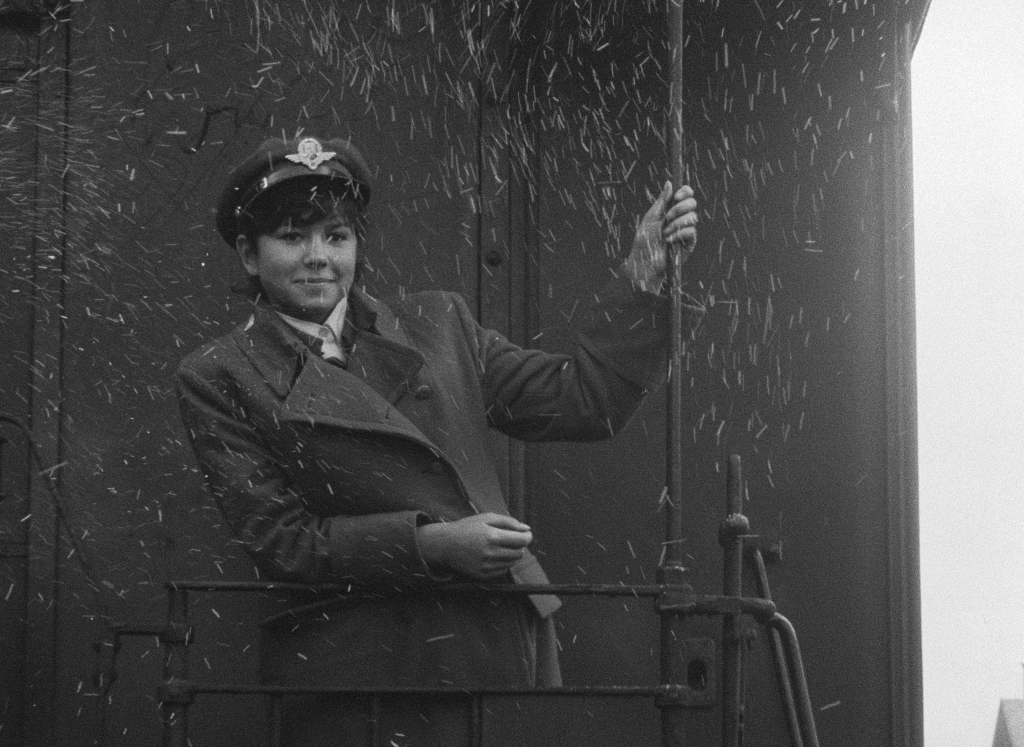
One of the most cherished Czechoslovak films of the 1960s, this was the recipient of the 1968 Oscar for Best Foreign Film. The feature debut of director Jiří Menzel is also celebrated at home as a milestone of cinema and as one of the key films of the country’s New Wave. The legendary adaptation of an exuberant yet delicate 1965 novella by Bohumil Hrabal tells the coming-of-age story of the young and inexperienced Miloš Hrma, who is serving as a station guard in central Bohemia at the close of World War II.
FILM NOTES
Jiří Menzel’s Closely Watched Trains is a film where everything works, including that most dangerous of devices, the shift, at the last moment, from comedy to tragedy. This pièce de résistance of the recent Czech cinema is a comic view of Czech resistance to the Nazis in which a bumbling youth tragicomically comes of age in sex and war. A dispatcher trainee at a puny railroad station, he has troubles with his work that stem from greater troubles with lovemaking, which terrifies him. The figures that surround him, notably the ambitious but inept stationmaster and a flyspecked Don Juan of a train dispatcher, are, like himself, drawn with a humor so sweeping that it would hurtle into satire or caricature were it not for the intense joviality and humaneness that inform it. Tenderness mitigates the farcical, a certain seriousness gives an edge to the laughter, and a lyricism in the photography and editing poeticizes the foolishness. Few things lend themselves more readily to photographic exaggeration than trains, but their use here is judiciously sparse and visually lovely – they function, in fact, as a kind of wipe between sequences of the plot, and their sound is a ritornello in the music of daily life. Menzel and his cinematographer, Jaromír Šofr, have achieved some of their most moving effects by the use of the camera unaided by anything except, perhaps, lighting and set design. The main devices are highly imaginative framing of the actors and eloquent use of the extreme close-up. Thus, for example, the shy hero is frequently shown very near the edge of the frame, or being marshaled toward it, so that his quality of timorous onlooker is conveyed by the composition. The camera often avidly closes in on an object; here, as in most of these Czech films, a suit that is being tried on, a rubber stamp, a pair of glasses, an old phonograph can produce an enormous visual and emotional impact. Things are charged with an immanent glory that has nothing to do with materialism or fetishism; rather, it bespeaks a profoundly affectionate reverence for the artifacts that have become our companions in living.
Menzel also appears as an accomplished comic actor in this and several other new Czech films. As a director, he reminds me most of Olmi, and, through Olmi, of their common master, Fellini. But there is also in him a visual and textural elegance that suggests Bergman and Antonioni. None of these influences, if such they be, is intrusive. The best thing about Closely Watched Trains is that it impresses one as unique, indebted ultimately only to its individual genius.
(John Simon, “A Track All Its Own”, in Closely Observed Trains, a film by Jiří Menzel and Bohumil Hrabal, Lorrimer Publishing, London 1971)
Courtesy of Cineteca – Il Cinema Ritrovato

